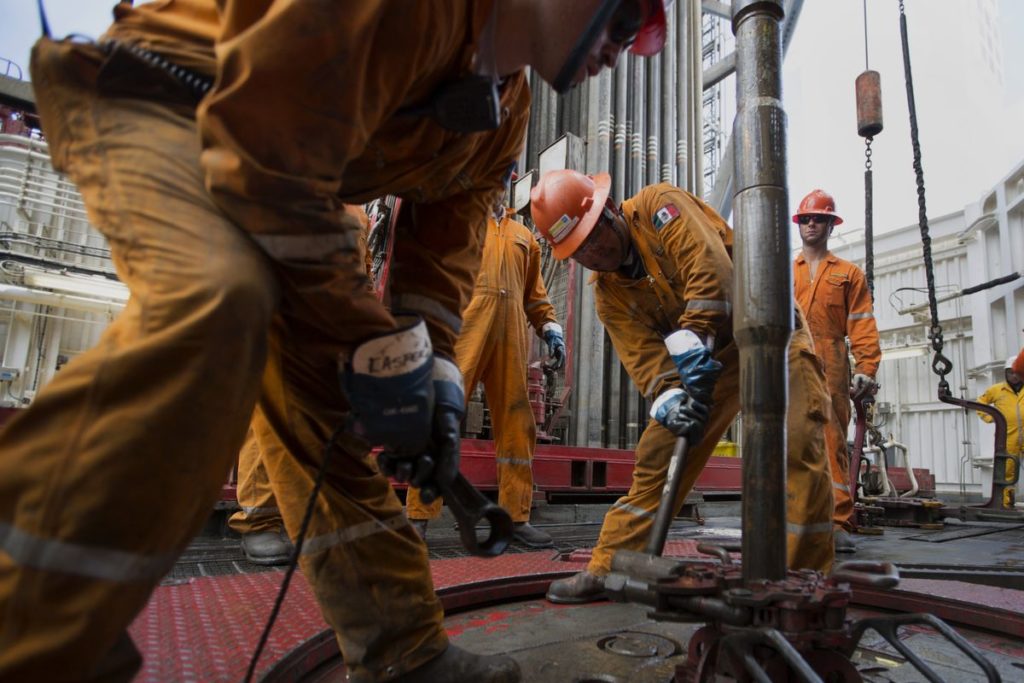
In the $40 trillion global oil-trading market, the smallest clue can be worth millions.
Take the number of people working at a refinery: Outside contractors are brought in for routine maintenance or to handle accidents that could limit demand for crude oil or curb the supply of fuels.
While oil companies rarely reveal such sensitive information, traders can gain insight into refinery operations by tracking the number of mobile phones at the plant, a proxy for the arrival of support crews.
It’s the latest example of how traders, rival companies and analysts are turning to new sources of information to get an edge in markets where trading is increasingly driven by algorithms that crunch vast troves of data.
By using so-called geolocation information that can originate from mobile apps, data scientists can track human behavior, from shopping habits to hotel occupancy rates.
“For oil traders, knowing where the workers are and how many there are will absolutely help traders know how much output the refinery is producing,” Claire Curry, BloombergNEF’s head of digital industry, said in an email. “Unconventional forms of data — like where people are in a plant, or the levels of oil in tankers — will become available not to just large companies who collect the data, but to the cleverest data scientist with the best algorithms.”
One company mining this information is Orbital Insight Inc., which uses mobile phone geolocation data — providing the times and locations for individual devices — to track staffing changes. The Palo Alto, California-based company, which also monitors global oil inventories via satellite imagery, says it can access location data for more than 800 million mobile devices worldwide through vendors.
While most geolocation data use has focused on consumer-facing businesses such as retailers, hotels and amusement parks, “valuable insights can be gleaned from the data by examining activity at specific manufacturing facilities,” said Octavio Marenzi, co-founder of Opimas LLC, a capital markets management consultant.
Thasos Group has used the data to show increases in shifts at Tesla Inc.’s factory in Fremont, California, the Wall Street Journal reported.
Refinery outages, whether planned or unplanned, can have a huge impact in the oil market and plants routinely delay or accelerate maintenance to maximize profit based on oil and fuel prices.
The disruptions are closely tracked by press and data services, including Bloomberg News.
For example, Bloomberg reported Jan. 1 that Philadelphia Energy Solutions LLC planned to shut about 200,000 barrels a day of capacity at its Philadelphia refinery starting Jan. 15 for approximately 30 days of maintenance.
Orbital’s data shows a spike in maintenance crews at the plant that lasted through February. PES wouldn’t comment about its operations.
In another instance, Orbital data appeared to confirm planned maintenance at HollyFrontier Corp.’s refinery East Plant in Tulsa, Oklahoma, started on schedule.
Bloomberg News reported Nov. 30 the planned work would start in mid-February and last until late March.
Craig Biery, director of investor relations at HollyFrontier, confirmed that the company is due to complete the maintenance at Tulsa East by the end of March.
The sale of geolocation data has come under scrutiny in the U.S. amid concerns over consumer privacy, fueled by the disclosure that political consultancy Cambridge Analytica improperly obtained data on tens of millions of Facebook Inc. users.
Virtually all of the data originates from mobile apps or providers of software development kits for mobile apps that have geolocation routines built into their offerings, according to Opimas. Orbital receives location data without any personal identification information and aggregates it.
The company’s service, which started Thursday and monitors about 85 percent of U.S. refining capacity, may be useful to identify changes in planned maintenance schedules that can be “fluid” as plants delay or accelerate work, said Michael Tran, a commodity strategist at RBC Capital Markets LLC in New York, an Orbital customer that had early access to the data.
“The ability to sharpen a view, or to really gain an edge, based not on anecdotal but more statistically significant signals, is extremely advantageous,” Tran said in an interview arranged by Orbital.
“There is an information asymmetry in this market” and Orbital’s product “lifts the hood and evens the playing field,” he said.
Orbital has received funding in the past from Bloomberg Beta, a venture-capital unit of Bloomberg LP.